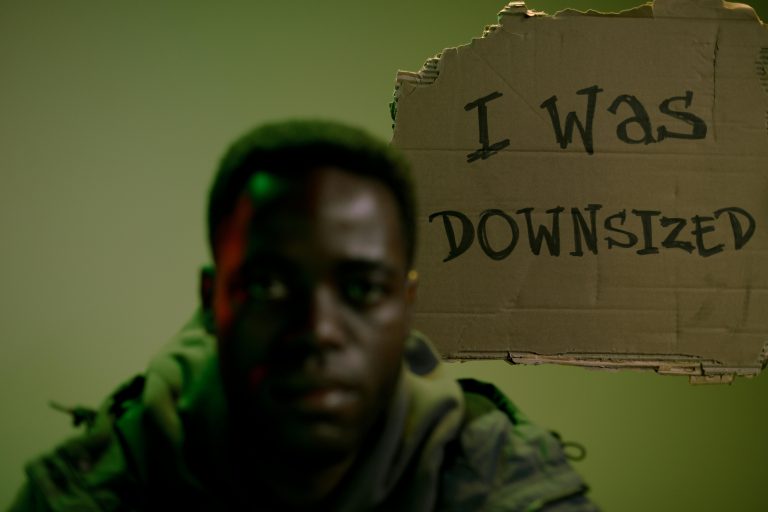In Kenya’s fast-paced job market, success often comes with prestige, financial stability and societal admiration. But when that success is suddenly stripped away through job loss, the emotional and psychological impact can be devastating. For high-achieving professionals- especially Gen X, Millennials and Gen Z who rose quickly in their careers- the fall from professional glory can trigger severe depression, anxiety and even suicidal thoughts.
The pressure to maintain an image of success, combined with financial strain and a loss of identity, makes them particularly vulnerable. Today, in Kenya where job security is uncertain and social status is tied to employment, job loss is more than just an economic setback… it’s a mental health crisis hiding in plain sight.
“When individuals who have built their identity around professional achievement experience sudden job loss, it can lead to profound emotional distress, including depression and suicidal thoughts. This phenomenon is particularly evident in public figures whose financial struggles have been widely scrutinized, amplifying the psychological toll of their setbacks. For individuals who have reached career peaks at a young age or experienced rapid financial success, a job loss or financial downturn can be devastating. And like those who gradually build resilience through minor career setbacks, these individuals may experience a sharp emotional decline due to several factors.
Firstly, they may have an identity crisis and self-worth issues. High achievers often define themselves by their careers. When that is taken away, they may struggle to recognize their value beyond their job title or financial status. (1:22) For example, an infamous Kenyan social media user whom I won’t name, known for his success in the automotive industry, faced significant financial troubles after a period of rapid business expansion. When setbacks occurred, the public’s reaction intensified his struggles, making it harder to separate his self-worth from his financial state,” began Ms Audrey Oluyole, a Nairobi-based Counselling Psychologist.
She went on,” Secondly, they may also experience loss of control and helplessness. Individuals who have worked hard to build success often believe they control their destiny. When unexpected job loss occurs, whether due to economic downturns or business failure or market shift, it creates a feeling of helplessness. This can trigger depression because the individual perceives their efforts as meaningless, reinforcing a learned helplessness mindset. Third is the public scrutiny and fear of stigma. Unlike private individuals, public figures and influencers such as our beleaguered Kenyan female Instagram influencer currently facing financial difficulties, they face additional pressure when their financial stability is questioned. As someone who built a brand on social media influence, financial wars may feel like a personal failure rather than a normal economic challenge.
The fear of negative public perception discourages individuals from seeking help, leading to social withdrawal, anxiety and depressive thoughts. Additionally, there is the financial stress and burden of lifestyle adjustments. Many successful professionals, especially those in business or entertainment, quickly adapt to high-income lifestyles. When the financial instability arises, adjusting to a different standard of living can feel overwhelming. Our car seller, for instance, openly admitted to facing financial difficulties despite having enjoyed a thriving business. The stress of managing debts, maintaining appearance and navigating public scrutiny can contribute to a downward emotional spiral.”
And so then, how could such high achieving individuals cope when their successes in different job markets come crushing down? How can they rebuild their sense of self worth and resilience in the aftermath? According to Ms Oluyole, this involves deliberate efforts to detach self-worth from professional success and developing healthier coping mechanisms such as cognitive framing whereby one can reframe setbacks as part of growth and a transition, understanding that setbacks are part of the journey and reducing self blame, and developing a new identity beyond work. They can also engage in volunteering, mentorship, creating pursuits or undertaking further education to help build their confidence in abilities that extend beyond work.
According to her, depression and suicidal thoughts thrive in isolation and being in therapy can help individuals reframe negative thoughts and develop healthier coping strategies, financially adapt to their new situations and strategically plan their next moves..
“While personal resilience is essential, external support is equally important. The way society, family and policy makers respond to professional setbacks can significantly influence mental health outcomes. So, there needs to be a breaking of the stigma around career setbacks. Society tends to romanticize success while silencing failure, making it harder for struggling professionals to seek help. There needs to be a cultural shift where setbacks are seen as a part of learning curve rather than a personal failing. Media narratives that highlight career comebacks and resilience stories can reduce shame and encourage struggling professionals to seek help,” explained Ms Oluyole.
She added, “Encouraging open conversations with families and friends, friendships play a crucial role in emotional recovery. Instead of judging or pressuring individuals to bounce back quickly, families should provide a safe place for discussion and reassurance. Checking in on a loved one and offering practical support such as networking opportunities, financial advice or emotional encouragement can prevent isolation and suicidal ideation. Policy makers’ interventions, mental health and career transition support-governments and organizations should invest in accessible mental health resources for professionals dealing with unemployment; career transition programs that help individuals reskill and find new opportunities. and financial counseling services to support individuals in navigating financial recovery without panic. By creating a supportive ecosystem, we can prevent the psychological devastation that often follows sudden job loss.”

